About Pranav Bhanage

Pranav is an experienced CEO who has helped Oil and Gas downstream businesses in Asia and successfully delivered complex turnaround initiatives. He started his career in the technology space about 20 years ago and has worked in management consulting for about 10 years with companies like the Boston Consulting Group and Frost & Sullivan. And over 6 years now in Oil & Gas downstream businesses with PETRONAS Group.
Pranav thus, brings in a strong blend of strategy consulting, implementation, digital enablement, and hands-on business management experience across key markets of Asia Pacific. Besides his professional achievements, Pranav takes pride in being able to make a tangible difference to the lives of employees and business partners by creating profitable enterprises. Moreover, he has taken an active role in mentoring and coaching junior staff across the world and seen some of them progress rapidly in their careers.
Paras Segal

We have the pleasure of welcoming Pranav Bhanage today to our interview series. I’m Paras Segal from the peopleHum team. Before we begin, just a quick intro of peopleHum. peopleHum is an end-to-end, one-view, integrated human capital management automation platform, the winner of the 2019 global Codie Award for HCM that is specifically built for crafted employee experiences and the future of work.
We run the peopleHum blog and video channel which receives upwards of 200,000 visitors a year and publish around 2 interviews with well-known names globally, every month.
Paras
Welcome, Pranav. We are thrilled to have you.
Pranav
Hello, everybody, Hi to the viewers!
Paras
So Pranav, the first question I had for you is,
Can you share with us the story of finding your passion and getting to the position you are in now?
Pranav
Yes, so I think there is no real story here. The theme is more of a discovery. I have done so many different roles in so many different jobs. It was all about finding out what I don't like and then finding the next sort of goal to see whether I enjoy the other thing or not. So when I started back in the IT space, I am an engineer by training and I think I did not really enjoy the art of core engineering.
And so coming out of it, I dabbled with IT. So it was back in early 2000, it was booming and it was quite exciting to work in that space. Having done that for three years again, I realized that perhaps this is not what is bringing out the best out of me.
So then I undertook an MBA and then started doing consulting, which I started to enjoy as things went along. And the thematic there Paras really is about understanding, taking part in different things with more of a portfolio, you do many things and then realize that this is something that will get the best out of me.
And then I realized that consulting, working with clients, trying to solve clients' problems, much like what your teams also do from a solutions standpoint. I think that's something I began to enjoy and through that, I've also discovered that I really started to enjoy the strategy implementation piece of it. Which is very different from strategy designs. Where you have to work with different people. You have to really get your ideas across, push your agendas to complex organization structure, etc, and then you can see a tangible shareholder value return.
So people's development can kind of result from it. So that's something I started to enjoy as well as I went along. And then I started to find opportunities, which were giving me that sort of experience, and it's sort of built upon each other.
So eventually I said, okay if I can advise big CEOs of big country setups to actually implement strategies, I should run my own pre-analysis structure at some point in time. So I sort of built up that way. I wouldn't say that, unlike some other stories that you guys share on this platform where somebody has an insight right away. It's like guitar is my passion. Cricket is my passion or writing or movies. I think mine is more of a story of discovery.
It really is almost a relationship of work stories and every different point in time you have different passions. And then as you evolve in the career you start doing something more or something more than the other. And start to find opportunities to do that.
It's more that sort of a revolutionary approach in the story. And I am satisfied with where I am. So, that's more of a sort of a broad spectrum in the sense of where I am and what I have been through. So I never dreamt of myself in a suit or something like that.
Paras
Yeah. That's an interesting take. It's your quest of finding something that you like and enjoy working that drives you towards. Interesting. Thank you so much.
Pranav
Quest is a good word!
Paras
So moving on to my next question for you, Pranav.
Now India is a country that worships education and labels. How do you believe a disciplined approach to life and education has helped you achieve or succeed in various roles?
Pranav
Very interesting question, I think. I'll probably break it into two parts “The label worship” versus “The disciplined approach” there are two different parts to that. See, I mean, if you look at it from the perspective of a label worship, and if you look at the history of recruiting say 100 years ago, the recruiting was entirely based on what we call as references. So, if I have a shop, my uncle says, 'Hey, why don't you hire this guy?' And I used to hire.
So the element that the human enterprises were trying to find out was actually the element of trust. Can I trust this stranger in difficult circumstances? Can I trust him with my money? Can I trust her with my confidential data and the ability to actually perform for me to trust?
So over the years, I think that that reference went down, and then you started looking at labels as a marker of trust. So, for example, if you are from ‘A’ list of schools, it is a great marker, I think we can trust this girl or this guy because he has been there, he has actually gone through the rigor of four years five years, He/She hasn't really been chucked out of the school. So it is sort of a marker of the character and the trust.
And I think that's where this whole, I mean worship is a strong word, but I think that's how the psyche of recruitment or psyche of trusting others evolves. So that's why you have these, ‘No old boy groups’ or ‘All Night Clubs’, so on and so forth!
And I think in principle that will continue because as the enterprises look at hiring other people which you don't personally know. You would definitely want to look at certain labels to give you that comfort that am I doing justice to this recruitment or am I looking at the right set of people, etc.
Alternately it's gotten into, in my personal opinion, we're almost putting the cart before the horse, we become so blinded by the institutions with the names, etc. This whole element of ‘Why it is used’ is getting missed out in certain areas, and then it can become a bit more biased or can be perceived as becoming more biased.
But in some shape or form it will still continue, I mean in social media also you have influencers. If somebody says you are good then, yes, when people perceive that, ‘That's really good’.
So, that's what will happen and continue to happen! I think if you steer a little bit on the other element of discipline. That is sometimes what the organization or recruiters want to find out. So, for example, if you go through a very rigorous course and you stay on course, then it doesn't mean that you are smarter than the others, but you are structured, you are disciplined and you take on an ambition of four years and you sort of tick all the boxes
So you will fit in a typical sort of a bell curve in the middle. So at least you satisfy the 80% needs of an organization.
So the rigor, the discipline to take on a course, complete a course and do all aspects of it in a more studious manner or structured manner, I think that's one thing that you can judge out of these institutions and much like myself or yourself and much like most of us.
We have gone through these structural education programs, and I think it has helped us to definitely be more disciplined. I mean, we never wanted to complete a four-year course and five years to do what we had to do. We put in all the efforts to make sure that we are not too bad, but it's really not very stellar either. But we have done that, and I think that sort of trains your mind to take on challenges in the organizations which are much the same, in a much time-bound as such, it has the discipline of doing it.
The whole element of actually taking on a project, looking at all aspects of the project, ticking on all the boxes, pushing it to a conclusion, and making an impact. That's the kind of rigor that these institutions and courses will build up in our education system and therefore we are people, who thrive in those kinds of environments.
Of course, one last bit on this, whether this is the best way for the talent of the future, well, there are no doubts about it. I mean, there's a lot of trends around learning at their own pace, you don't have to be sort of going through a structured program.
So there's a lot more emphasis on the right trend and a lot more emphasis on individualizing education, etcetera, which will, in my personal opinion, become more of a norm 20 years into the future. I think the way our kids are learning is very different from at least what we were doing.
So I think it is going to change. When they come into the workforce, I don't know whether their organization will be able to understand whether he's a discipline or not or structured or not. But again, whether that skill of being disciplined, structured, typically loyal, etc. Whether those skills are necessary or not in those new-age organizations is again a big question mark. So I guess, interesting times as we move ahead.
Paras
Interesting perspective. Because all these guys right now are getting everything at convenience, whether it is education or anything else. It's going to be questionable and interesting to see if the discipline of being an organized part of the house plays a big role or not.
Pranav
It is! It is! I think it will pan out in front of our eyes. I think by the time we retire, we should be able to see some of it.
Paras
So over to the next question, Pranav.
So the next question we have is India as a young country, the kind of challenges that you face in hiring and engaging the right talent to succeed in this marketplace model?
Pranav
India is not one India, the relations we carry is really a continental-size set up with its own specific behavior. In a growing economy, you need union people with a lot of ideas, but you also need people with the perseverance to actually take your idea to a conclusion in the future.
And these two things are something that would come out as a key as what you require from the young people coming up. The third element to these two things is actually the ability of the individuals to really take a wider perspective, look at different perspectives, talk to different people, take conflicting ideas and actually, coalesce them into a tangible sort of a product or a project, and then is implement it.
So three elements there, I think definitely you need some amount of crazy thinking, we definitely need some amount of discipline to actually conclude your projects.
But the third important thing is really how do you become comfortable with conflicting ideas? How do you say that this doesn't work in India? How do you come out of that? How do you say that 'Hey, we are on a new project, so we need all of the new ideas? How do you get people with conflicting ideas together and actually come out with the middle ground and then push that?
I think that's something that will become a key element that will look at the kind of talents you require in this industry. We look at growing rapidly, notwithstanding the near problems we are facing but I think directionally we are definitely on a growth path and the changes would be constant.
I think, out of the three things, definitely, we do have ideation, and I think we are really good at ideation. And having worked in different areas in the world, I find a lot of new ideas come in here on a daily basis. People are extremely entrepreneurial.
On the elements of how we package it, how do we have the perseverance to close what we've taken and how do we live with conflicts, how do we become comfortable with conflicting ideas, I think that's something that we will as a workforce need to perhaps work on a little bit as we go along the journey.
Paras
Correct. Correct. It makes a lot of sense. Thank you for this viewpoint. So over to the next question, Pranav.
Being in the lubricant industry, you might have had a lot of gig and seasonal or outsource workers in your organization. How do you think this gig economy in India is going to change the workplace of the future?
Pranav
It is an actually very broad question. Well, I think the gig economy is itself a new term, but I think in the Indian economic set up for many many years, we've always had these bunch of people doing odd jobs. When I remember when I was growing up, this guy fixed our furniture and would do something else during the Agri season, and used to go and help somebody to paint the house.
So, we have always had and we still have a very large informal economy. And there is a gig element to it. I think it is the new age term but I think, in essence, it has always existed in Indian economics. We've always seen people work on the farms, and then they used to come and do something in the town because there are some unfortunate circumstances. And then they again go back to the farm and do something there.
So it has been there and it will continue is what I think. The economy has given it a nice term, and it's sort of like quasi-professionalized this whole thing. So now you can register yourself as a driver or a delivery guy, or something like that and then you sort of formalize a little bit on what you've been anyway doing for a long period of time.
So that is a little bit different from a contractual or outsource workforce, in my opinion, and the gig is driven by what I would want to do, and I can switch it on and switch it off any time I want. I think contractual may not be on the payrolls, but actually is still a defined job with a certain amount of benefits, and there is still an underlying contract between the longevity of this sort of a deal.
The post-COVID-19 sort of situation, I think there will be some questions asked on whether it makes a lot of sense to have their personal freedom with benefits and it doesn't mean the gig economy is bad or good. It just means that an individual needs to answer that vis-a-vis benefits, how do you weigh personal freedom versus sort of guaranteed benefits that come along with a more focused, more long term mission, and that question would be asked by the people who are participating in the gig economy.
They question themselves. Does this make sense? Or should I go ahead and apply for a regular job. A job in a bank or whatever that it is. Because it may not pay me that much but it will still protect me in times of crisis.
Paras
That's an interesting take! Thanks for that Pranav, I must say it's a unique perspective, but they also try to locate it more from a gig economic worker rather than just the organization of the company. Interesting!
Pranav
Yes! I think organization wise, if I may add to that, there is always a place for different kinds of needs of the organization so those needs will not change. I mean some needs of the organizations are temporary in nature. Some needs are permanent so I think the needs will not change. In my opinion, it's more of the participant's perspective of nature.
Paras
Thank you for that Pranav!
So the next question is what are some of the focused areas and techniques that you use right now to manage change, which we are seeing around? And how do you go about inspiring and aligning people to the vision and the objective that you’ve said?
Pranav
That's a good question, I think given the current circumstances, I would see a lot of change and change management happening with organizations across the world. And it's a very important question of how we are going to manage change. I think from my experience Paras, there are two perspectives of change:
- What does management or the shareholders want? What is the shareholder value that you want to drive through change?
- The other aspect is the people aspect. So what does the change mean for me or you or any employee in the organization?
So I think the fundamental principle at least I push my team or push myself or push anybody who's into this process is, 'What does this mean for us? How you define the two P statements, how do you define the new 2.0 or 3.0 to your people, and the people in this case in a larger organization could be tens and thousands of people. How do you sort of communicate the two P statement? And it's actually quite difficult to do because it requires clarity of thought of the people who are involved in the change and that's the first step in order to actually start mobilizing the organization towards the change.
And I think designing the two P's, what would be the new organizations, I mean, there are so many experts around the world and a lot of the consulting companies do a great job in actually advising, saying how you want to go about & what you want to do.
But sometimes the translation of that to what it means for me as an employee or as a participant of the organization, not the shareholders or the management, but actually the employee, the larger base. That sometimes is missing.
So there is something I at least push people to say what it means? What do you really want to do? What is Organisation 2.0? Is my life gonna be easy? Am I gonna be digitally enabled? Will my job be there or not. I think those are the kinds of questions that come up from the bottom of the pyramid and then they have to be answered in a more structured way.
So if you are able to give that clarity of vision of where you want to go and what that 'to be' state is, then what I have seen in my experience is that you're able to rally the organization towards change.
And it's also personal, if somebody says, 'Hey why don't you move to Bangalore?' You would ask, 'Okay, what does it mean for me to move to Delhi? I mean, what's my life there? Which school do my kids go to? Where would I live? What's gonna be the quality of life?
So, that's really the simple translation of the vision to an individual. So in our personal lives, we actually follow that and we push a lot. But when it comes to an organization you probably miss that you're taking 20,000 people on this journey.
You got to really tell them that, 'Guys, there's a better city out there, a better life out there.' And that's why you will rally people around.
But if you looked at the stats around change and transformation, I think it's probable there have been more failures than success. Many transformation projects have not delivered to the level that was expected. It may not be an abject failure, but it doesn't go to the end goal you wanted. A lot of the reasons for failure has to do with translating your vision to what it means for the people because, at the end of the day, they will be the ones who would be the journeymen and the beneficiaries.
"A lot of the reasons for failure has to do with translating your vision to what it means for the people because, at the end of the day, they will be the ones who would be the journeymen and the beneficiaries."
The tougher aspect is something that requires a lot more questions as well. I mean you need to communicate with people many times before it really becomes a language of business, or it's difficult to change their personal comforts and behaviors.
If today, somebody says, don't use Zoom, use something else. My first resistance would be, 'Hey why don't we go back to Zoom because I'm so comfortable with it, I know where to press.'
Paras
It's an interesting take and yeah, I do agree with you. It's an evolution and evolution takes time.
Pranav
Exactly, I think we don't give that much attention to time but I think a lot of the changes are a function of time.
Paras
Yes, thank you so much for your viewpoints. So the next question we have for you is,
Given the economic impact of the coronavirus that we're seeing, what should organizations look to do given the recovery from the pandemic is supposed to be slow and gradual. And do you think, or do you anticipate that the market view to the change from business to employees and people or would you think that the organization should be more socially oriented, compared economically?
Pranav
This is a very broad question, I think. Good questions and you probably might get a good insight if you were doing a panel discussion just around this question. But I think I'll take the liberty to take my stance here.
I think first and foremost it's an unprecedented crisis, you probably have heard this term everywhere and I am really glad and really thrilled to see the way they have health care workers and regular people on the streets. People who are managing our utility supplies, all of them are doing a phenomenal job of just maintaining our sanity at home.
On the perspective side, I think I would say this is sort of a wake-up call for us as humans, right? Our generation especially. We were always thinking that we are invincible, we can do whatever we want, we can transform cities in three days, we can damn the rivers and change the floors and do whatever we want. We can really, really do whatever we want.
And I think we have grown up with that kind of positive sense of outlook, you know, where we say nature is, by the way, I mean it is there. I can do whatever I want. And this is sort of a call that says sorry, you gotta respect nature. I mean, at the end of the day we are one of the many organisms on this planet and much like anybody else, we are also vulnerable to these kinds of things.
And I think before the organization, it should change people's outlook towards their own lives, what they want to do, and how they want to prioritize. I think I would definitely see that a lot of people would try to drive work-life balance, try to live a healthy life, try to at least get close to their families, or friends and that would be the first wave of a change in my opinion. It is a generation-defining change.
“It is a generation-defining change.”
So in our generation, we’ve never had this kind of a situation which defined a generation, and it's ubiquitously affected everybody across the world. So after perhaps the great war, the beginning of the last century did not have something that impacted everybody in almost a uniform, indiscriminate way. And definitely there will be a pre-COVID and post COVID in all organizations, small or big or complex or simple, I think everybody.
And now, what that change will be? There is no prescriptive way of looking at it. I think fundamentally people will start to value the profitability, the prudence of profitable growth versus a high-risk growth, or a highly levered growth. I mean those kinds of questions will come up first.
There will definitely be a thought around sharing economy. Should I have my own personal space, or should I share it with other people or not? I think those existential questions will be asked. There will definitely be an impetus towards deliveries and getting stuff at home and office delivered, rather than going and mentioning and doing everything on your own.
There will definitely be questions around work from home, reducing the travel back and forth to the office. I think those things would come up. So there are these changes that will happen from a whole directional perspective.
Now specifically on the questions that you asked on how does it change the outlook of the employer towards employees? I think definitely a lot of organizations have responded in a very humane way, which is very good to see. I think overall we've always tried to put people first. The organizations are ensuring that people don't get affected by the crisis, etc.
So there is a lot of positivity at least that can be read and heard about in the near term of office. But the long term impact of this is, very hard to be prescriptive because it again will go back to what do the companies want to be post-COVID? How do they reinvent themselves in this crisis and come out of it and define a new version of themselves?
So there could be some knee jerk reactions towards managing people etc. But in the long term again it goes back to the fundamentals of the businesses of what is going to be my post-COVID version of my business. How do the employees enable that? I think that the fundamental equation will not change.
Paras
Thank you. That's an interesting take. It's testing times and I do believe and agree with you. It's kind of a great equalizer in what we've been seeing.
Pranav
Correct. It is, I mean everybody is affected in the same way and so it's almost like drawing a new starting line and say, 'Okay, guys run again and it's a great opportunity for people who can do well, eat right and run faster.'
Paras
Absolutely. Thanks for that insight and your viewpoint. So the last question we have for you Pranav today is,
If you have any important sound bites that you would like to leave for our viewers.
Pranav
Well, given the testing times that we are in, I think the most important thing that keeps me motivated is that I look at every crisis as an opportunity and with that mantra, you can actually self motivate yourself. You can actually open a fresh piece of paper and a pencil, which I do every day, and try to draw out what we can do as an organization or what I can do as a person when things normalize.
And it's given us a chance to rethink our priorities, which I think we should all do. And I hope that all the viewers who watch this will at least come up with a simple to-do list post-COVID-19. What you will be or what you aspire to be and of course for an organization perspective, what is that 2.0 design you have for your organization?
Paras
Wonderful. Thank you so much. It was a pleasure talking to you Pranav as part of the series. I really appreciate your time and sharing your views with us. It's been an enriching and learning experience for me personally and will surely think for our viewers too.
Pranav
Thanks.

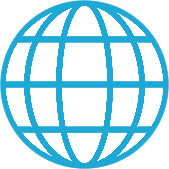









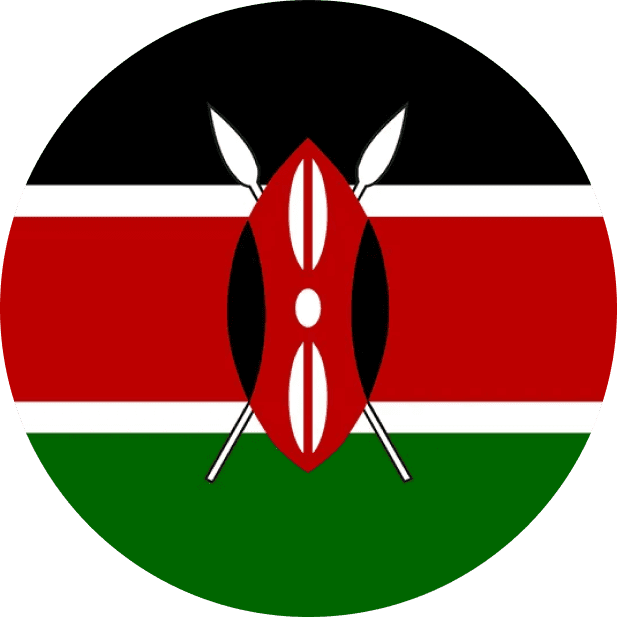




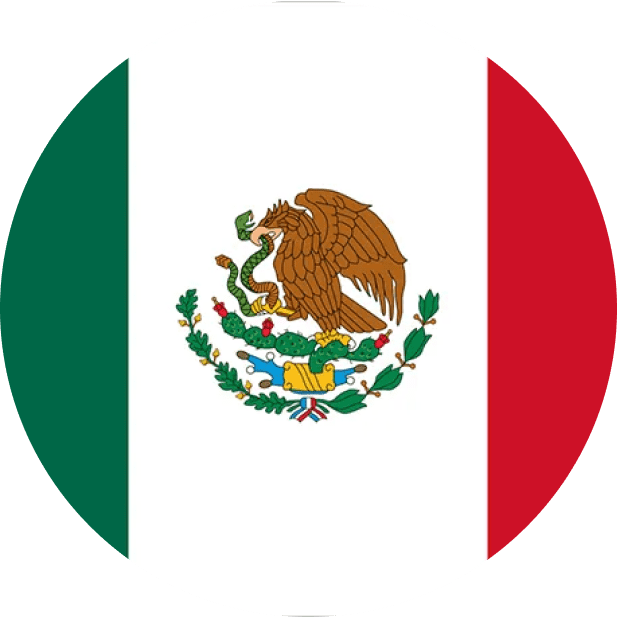








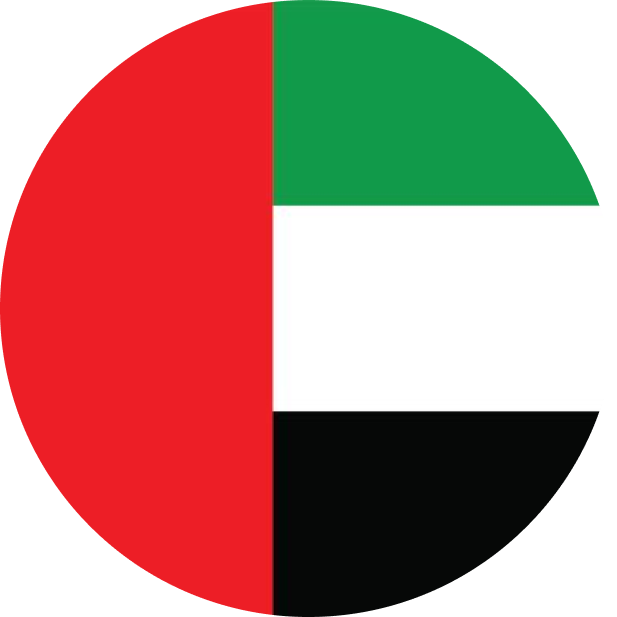
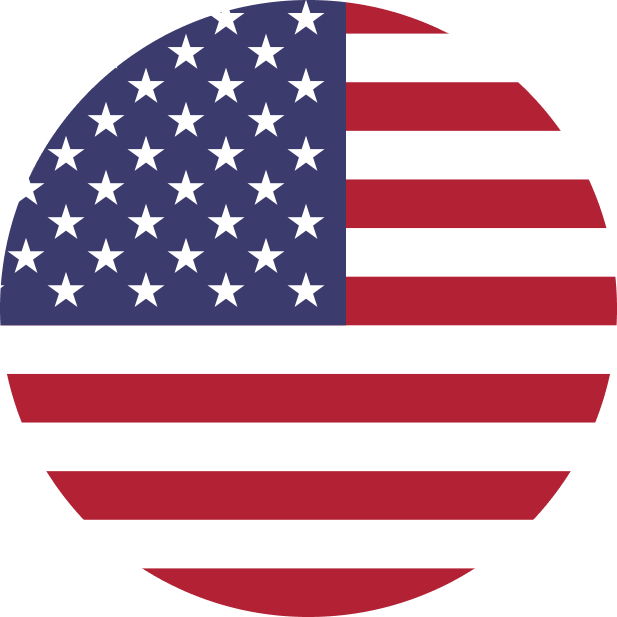




![Driving change and building value - Pranav Bhanage [Interview]](https://assets-global.website-files.com/62d84b3d3ba446b2ec041a19/62d84b3d3ba44674830447c6_driving_change_building-min.jpg)



.jpg)
![How to stay relevant during a crisis - Rita McGrath [Interview]](https://assets-global.website-files.com/62d84b3d3ba446b2ec041a19/62d84b3d3ba446881d043992_Untitled%20design%20(13).png)
![Transforming adversity into opportunity - Rhett Power [Interview]](https://assets-global.website-files.com/62d84b3d3ba446b2ec041a19/62d84b3d3ba446eee4043850_untitled-design-(4)_optimized.png)











